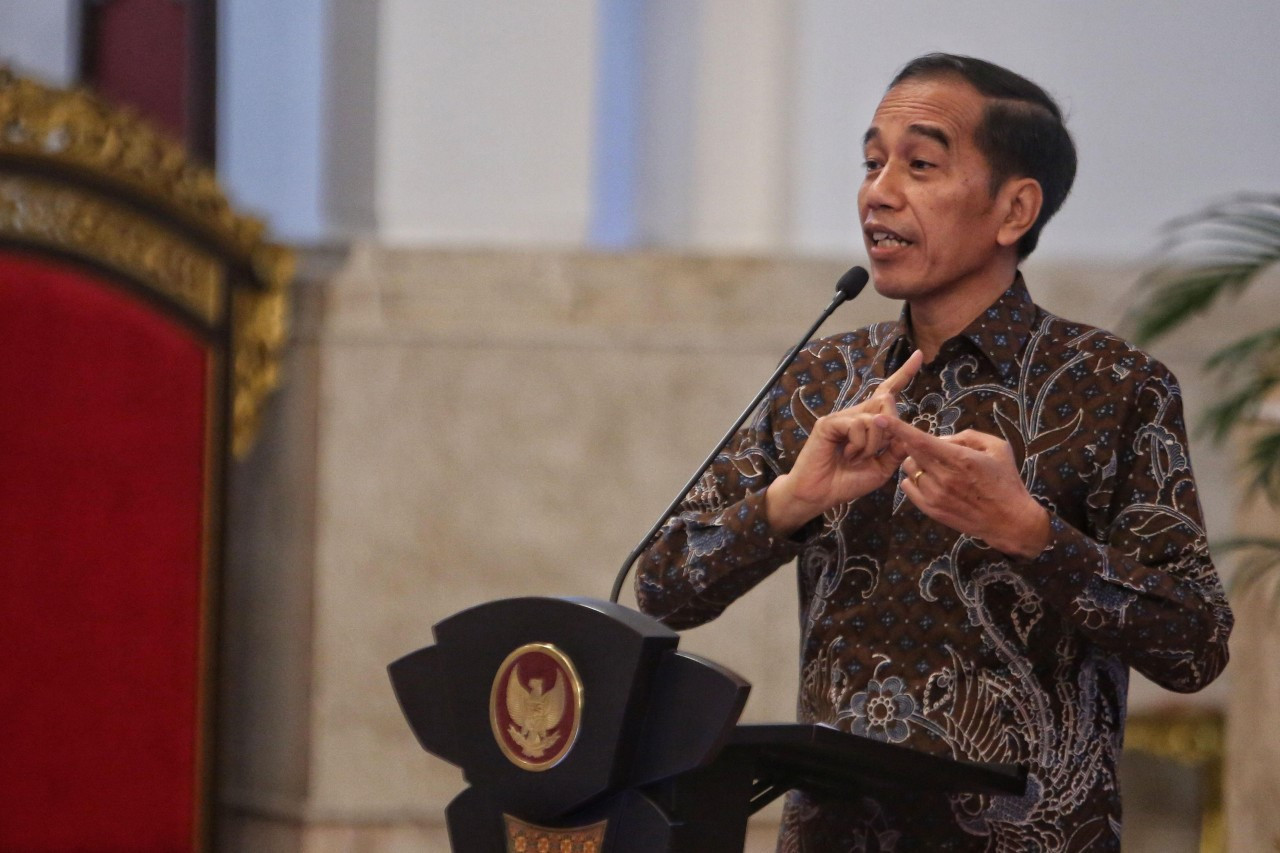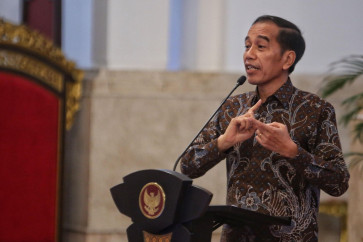Popular Reads
Top Results
Can't find what you're looking for?
View all search resultsPopular Reads
Top Results
Can't find what you're looking for?
View all search resultsAnalysis: Jokowi is good as kingmaker, but for how long?
Change text size
Gift Premium Articles
to Anyone

After failing to win sufficient political support to get his term extended beyond 2024, President Joko “Jokowi” Widodo is maneuvering to make sure that whoever succeeds him will protect the legacy that he has built since taking power in 2014. Without a political party as his support base, however, he may find limitations to this role as kingmaker.
Critics, including his former vice president Jusuf Kalla, have called this cawe-cawe (Javanese for meddling) unethical, saying that as President, he should stay above the fray. In his response, Jokowi justified his actions as being for the good of the nation, to ensure continuity in the national political leadership.
Jokowi is not the lame-duck president many had predicted he would become in the twilight years of his presidency. He still has some political clout to influence the outcome of the presidential and legislative elections in February next year, and he is using it.
For one, he commands the loyalty of millions of nonpartisan supporters who will give their votes to the candidate and the party of his choice. Second, he retains some control over the seven political parties that are part of his coalition government. Although political parties have the sole power to nominate the president and vice-presidential candidates, Jokowi has used his power to try to influence the choices of the parties in his coalition.
The NasDem party, a member of the coalition, learned this when it lost a strategic Cabinet seat apparently for defying the president’s wishes. Former communications and information minister Johnny G. Plate, a senior NasDem official, was named a corruption suspect last month that led to his dismissal. Jokowi is not likely to replace him with another NasDem official and rumors are now circulating that the party could lose its two remaining Cabinet seats.
Being cut out of the coalition would deprive NasDem of access to power, money and various state facilities. NasDem’s sin in Jokowi’s eyes is nominating former Jakarta governor Anies Baswedan, Jokowi’s political nemesis, as presidential candidate. Anies is campaigning for change, hoping to capture voters who have grown tired of Jokowi’s presidency and want a new direction for Indonesia.

Jokowi has publicly endorsed two other presumptive presidential candidates, Defense Minister Prabowo Subianto and Central Java Governor Ganjar Pranowo, while trying to undermine Anies’ electoral standing. He may have overplayed his hand though as all opinion polls put Ganjar and Prabowo as the two most popular figures, with Anies trailing in third.


















